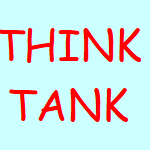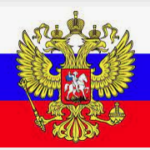Why do you think the West is so insistent on imposing democracy everywhere in the world? Is it because the West wants the people to rule everywhere in the world? Is it because the West wants prosperity everywhere in the world? Is it because democracy is the best political system that mankind has known, that mankind has invented, that mankind has been endowed with? Why will this West go to war with any country (weak enough to be beaten with impunity) to overthrow a dictatorship and introduce democratic rule? Is it because Westerners have nothing better to do than think of all those nations around the world that allegedly yearn for democracy?
Yes, you guessed right. Democracy is a cover for the best system ever — for the oligarchic system, for the rule of the oligarchs. While they rule the country and the world, they also make ordinary people believe that it is…. ordinary people who rule the world! This oligarchic system is much better than monarchy or aristocracy. The monarch or a group of aristocrats are on the radar of the demos (i.e., the people) and are blamed for any failures. In a democracy, the demos cannot blame anyone but…. itself! Look, bad decisions were made by inept politicians, who in turn were elected by…. you, the people! Therefore, ultimately you, the people, are to blame!
Education, entertainment and information make everyone believe that, to quote a hackneyed saying, democracy is a bad system, but unfortunately no better one has been invented. So people believe they are living in the happiest times in history. Behind the scenes, the oligarchs – influential, wealthy individuals – do what they please and use some of their money to make democracy work. Part of the scheme is to distract the demos from the real rulers of the world: the oligarchs. How do they distract? They point the finger at dictators and tyrants elsewhere and at – yes! – oligarchs elsewhere! The Western oligarchs are busy pointing at the Russian and Ukrainian oligarchs, thus hiding their own influence over the governance of the countries! How clever!
This is what Gefira 67 deals with and invites you to consider.
Gefira Financial Bulletin #67 is available now
- The (Leftist) Oligarchy Rules the World
- Which repeat of this madness is this one?
- Women in politics on the side of the… political right!
- DARPA – The goal is: to control our thoughts and decisions




















